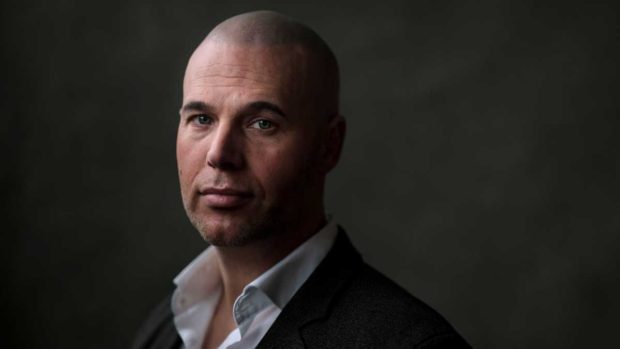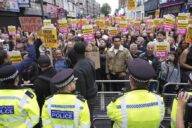The news of a Dutch Islamophobe politician converting to Islam has recently hit the headlines, shocking many and proving the need to have more knowledge before judging any religion (in this case, Islam, which frequently raises suspicion and prejudices among the Western population).
The Dutch MP is Joram van Klaveren, who until 2014 was a member of the far right Freedom Party (PVV), a political party known for its harsh stance against Islam and the presence of Muslims in the Netherlands. Moreover, he had been the right hand of Geert Wilder, leader of the PVV and one of the fiercest opponents to Muslim migration and what he calls the “Islamization” of Europe. He has frequently called for the banning of mosques and hijabs, as well as for the halt to Muslim immigration. In fact, Wilder was recently convicted for hate speech and inciting discrimination after calling for the expulsion of Dutch Moroccans from the country, threatening to take an active part in solving the issue. This, allegedly, is one of the reasons van Klaveren left the party.
As van Doorn explains, it is easy to fall for the prejudices and stereotypes promoted both by the media and a part of a fearful society.
Surprisingly, van Klaveren’s conversion comes after he began studying Islam in order to publish a book on this religion’s violation of rights and its threat to the West. His study of the Quran and learning of Islam have led him, instead, to convert to Islam. As he has afterwards explained, he was just wrong in his assumptions and prejudices. Moreover, he added that his blaming on Islam of all the West’s problems was just part of his former political party’s policy, following a political agenda.
The book he was preparing on the evils of Islam has, thus, taken an unexpected turn, changing its title to Apostate: From Christianity to Islam in the Time of Secular Terror.
Similar cases around the world
 But this is not the only case known. Last month, January 2019, Arthur Wagner, member of the alt-right political party “Alternative für Deutschland”, decided also to leave the party and convert to Islam. Alternative für Deutschland has promoted several campaigns against the “Islamization of Germany” and the presence of Muslims in the country in the last years.
But this is not the only case known. Last month, January 2019, Arthur Wagner, member of the alt-right political party “Alternative für Deutschland”, decided also to leave the party and convert to Islam. Alternative für Deutschland has promoted several campaigns against the “Islamization of Germany” and the presence of Muslims in the country in the last years.
Although he has not publicly explained the reasons behind his conversion, he has confirmed the fact and rejected his former political party.
Similarly, in 2013, Arnoud van Doorn, also a member of the Dutch Freedom Party (PVV) –van Klaveren’s former party– and former advisor of Wilders, was expelled from the party after converting to Islam and travelling to Saudi Arabia to perform the hajj.
In the following video, he explains the reasons for his conversion, as well as for his previous radical stance. As he explains, it is easy to fall for the prejudices and stereotypes promoted both by the media and a part of a fearful society.
Many other examples can be found all across the world. The following video, a snippet of local news in the US, shows the case of two American anti-Islam demonstrators, whose views made a U-turn after they were invited to visit the mosque they were demonstrating against. As they explained, they were surprised by the Muslims’ tolerance and kindness, as well as by their desire to explain to them what Islam really is. After these events, they have not only rejected their former bigoted stance, but are willing to continue visiting the mosque and getting to know its Muslim community.
So, what can we learn from this?
This leads us to ask ourselves, why is this happening? The answer transcends Islam itself and refers to the prejudices, bigotry, and, specially, lack of knowledge that surrounds the population. As van Doorn explains in his lecture, it is indeed easy to align with the fear experienced by part of population, which is conveniently exploited by the media and the politicians to justify some of the problems society is currently experiencing. It is also easier to build walls than to tear them down. Hence the need to promote an educated and open society, in which all communities and religions can get to know each other. And, thus, discover all the lies, exaggerations and generalizations that surround the stereotypes through which these communities have been portrayed.
Alfonso Casani – FUNCI















No Comments